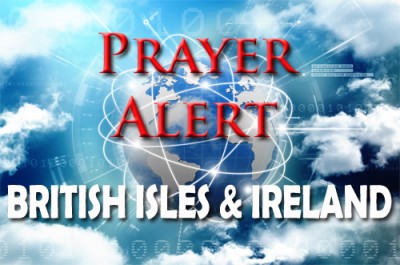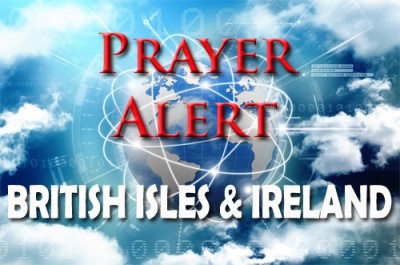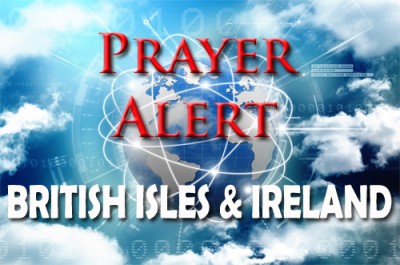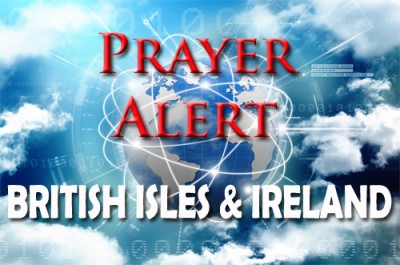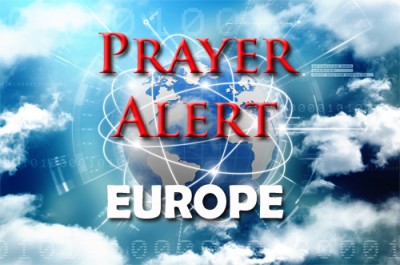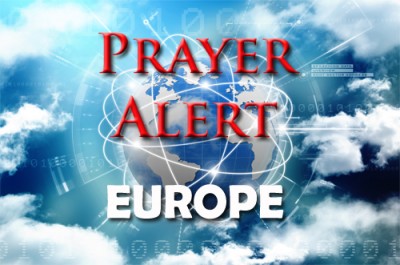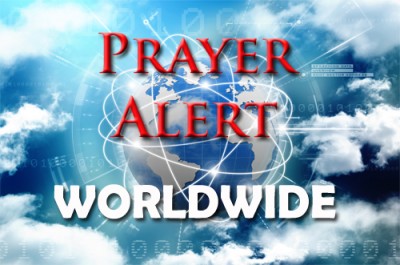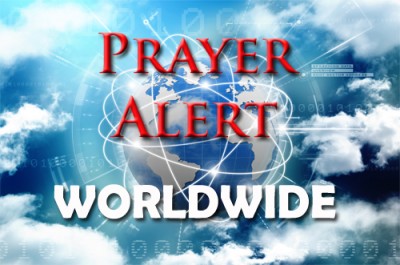Faith schools rules to be relaxed?
16 Sep 2016The government is set to relax rules on how faith schools select pupils, to allow new Catholic schools to open in England, according to a Number Ten source. It comes as the education secretary said ministers will take a pragmatic look at new grammar schools. Justine Greening said she wanted to offer parents choice but children would not be split into ‘winners and losers’. The source said, ‘We're going to change the rule, to allow new Catholic schools to open, while making faith schools of all kinds do more to ensure their pupils integrate with children of other backgrounds.’ Pray that the furore over reintroduction of grammar schools will not affect the move to remove the cap on faith-based admissions, so that the Catholic Church will be able to meet the current parental demand for thousands of new Catholic school places across the country.
Call to bless the UK
16 Sep 2016Dr Clifford Hill writes, ‘It is vital that those in Britain who know the Lord declare the Gospel with their words and lives.’ In the aftermath of the vote to leave the EU all the forecasts of doom from those who wished Britain to remain within the EU have not been fulfilled. The economy has not suffered dire consequences, the housing market has not collapsed, unemployment is down and retail sales are up, giving a general feeling of buoyancy and hope for the future. If God's blessings upon the nation are to continue, there is a huge responsibility upon those who know Him and know the Bible. Only 44% of the nation claim to be Christians and 48% have no religion.’ There is a huge responsibility for spirit-led evangelism. May the body of Christ grow in faith and action.
Many in General Synod support LGBT
16 Sep 2016A letter to the College of Bishops, signed by three deans, eight archdeacons, and 72 members of the House of Laity, states, ‘We are keen that the College of Bishops is unequivocal in its acknowledgement that all, including those who identify as LGBT, are essential to the health and future of our church and mission to the wider world.’ Synod member and LGBT activist Jayne Ozanne said that the church needs to be seen as a church for all, and bishops can't fudge this any longer. The House of Bishops will meet in November, and is likely to discuss feedback from the recent College of Bishops' meeting. After July's Synod, Andrea Williams of Christian Concern and Wilberforce director Dr Joe Boot issued a statement saying that the paucity of the biblical argument to support anything other than that of the Orthodox and presently-held position had been ignored, and replaced by an appeal to secular norms.
Getting scriptures to the lost
16 Sep 2016In thirty years over 100 million Bibles have been printed to keep up with global demand. Yet in the UK 90% of people don’t read it. One third of 15-year-olds don’t know that the nativity story is from the Bible, and the same percentage of adults believe the plot of The Hunger Games is from the Bible. Many people don’t think the Bible is relevant to them. The Bible Society is determined to change that, and is working to help people recognise the value of the Bible by developing resources that help local churches to engage more deeply with Scripture. It is sending thousands of volunteers into primary schools to share Bible stories with a generation almost entirely unfamiliar with them. In politics, media and the arts they are bringing the Bible to life in fresh, exciting and relevant ways with a range of activities and resources in both English and Welsh.
European Council meeting today
16 Sep 2016A European intercessor writes, ‘Today the heads of state who make up the European Council will meet in Bratislava (Slovakia holds the EU presidency). This meeting is important because the Council must find a way forward for the EU after Brexit. There are two opposite conceptions for a future structure of the EU. One is ‘more Europe’, which means to continue on the way of integration and becoming a closer Union. This is the position of both the President of the European Parliament (Schulz) and the President of the Commission (Juncker). The second is ‘less Europe’ which means strengthening the independence of the national states. This is the position of Poland, Hungary and many other states. This decision includes the question: who is leading the European Union in the future, the Commission or the Council? Angela Merkel clearly speaks for the Council.’
IS recruiting desperate jihadists
16 Sep 2016Many IS terrorists originate from Europe and North America, with recruiters taking advantage of the economically marginalised. In Tunisia, 90% of recruits are from marginalised neighbourhoods. Over half of the Tunisian population is aged under 30, and 40% of them are unemployed. In Jordan, 70% of the population is under 30 and 1/3rd of them are unemployed. It’s no coincidence that IS is building networks in marginalised neighbourhoods, towns and refugee camps across Europe - something that Al Qaeda had never even considered. ‘The government is not hiring, and no companies are investing’, explained a young man. ‘We can spend the rest of our lives in limbo or earn a living wage as part of their caliphate.’
Syria: tenuous cease-fire starts
16 Sep 2016The US/Russia-brokered cease-fire for Syria came into effect on Monday and will end at midnight on Sunday. Nations hope the truce can lead to the revival of peace talks between Assad’s government and the rebels battling to overthrow him and contribute to efforts to defeat IS and other extremists in Syria. Russia’s Deputy Foreign Minister Mikhail Bogdanov said peace talks between opposition groups and the government could resume as early as next month. However, that scenario is complicated by the fact that Jabhat Fateh al-Sham remains intertwined with several other groups who are fighting on the ground and harshly criticised the US/Russian agreement to reduce violence. However, it did not reject the ceasefire, and along with the 21 insurgent groups welcomed plans to deliver aid to besieged areas of the northern city of Aleppo, saying it will help facilitate them. Pray for peaceful strategic military objectives to be achieved, with ongoing UN-established aid corridors into areas.
Global famine report - 30 August 2016
16 Sep 2016The nutrition situation in Borno and Yobe states in NIGERIA is extreme. The Boko Haram conflict has contributed to large-scale population displacement, limiting market activity, and restricting normal livelihoods. Other areas of highest concern are ETHIOPIA: following a severe drought, more people will need food assistance over the coming year than at any time in the past ten years. SUDAN: below-average national food production and very large pasture deficits. SOUTH SUDAN: conflicts continue to disrupt trade, humanitarian access, and livelihoods. Food security has deteriorated to ‘Emergency’ in Northern Bahr el Ghazal. YEMEN: extensive conflict has reduced incomes and elevated food prices. Food is inadequate for poor households. Many are suffering from the 2015/16 El Niño which led to drought. SOUTHERN AFRICA: 2016 is a second poor food production year. The number of people in crisis is expected to continue to increase through the year . HAITI: there are below-average agricultural seasons, reduced labour demand, and continuing high staple food prices.
